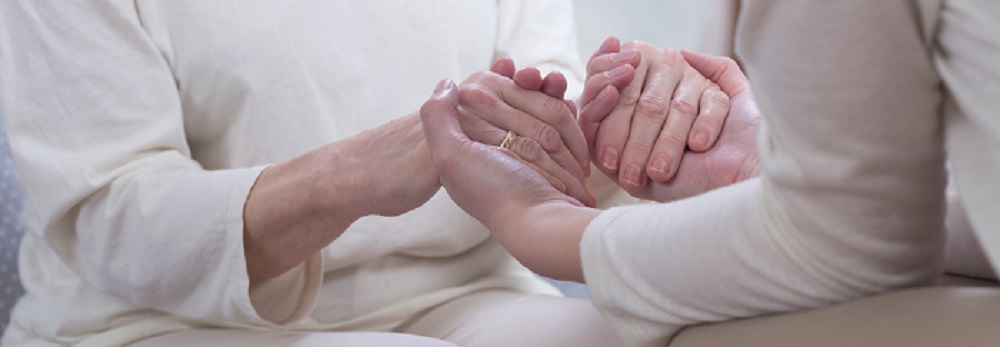
by Melissa Howard
A study of grief and its impact on widows and widowers revealed that nearly one-third of subjects suffered detrimental effects to their mental and/or physical well-being. Those effects included the risk of suicide and death from heart disease and a host of psychological problems. Roughly a quarter were found to be clinically depressed during the first year after the loss of a spouse. A variety of serious physiological problems may arise.
Many older people die soon after losing a spouse due to problems with their immune system. The loss of neutrophil, a type of white blood cell that protects against bacteria and from serious illness, such as pneumonia, plays a significant role. Clearly, depression, hopelessness and helplessness have a devastating effect on the body, which makes it important that bereaved seniors get help in handling their grief. Presented by AfterTalk, the following steps can help you help them.
The signs
Grief is manifested in ways that don’t necessarily follow a pattern. A bereaved person may feel happy one day, only to fall into severe anxiety or depression the next. Rather than trying to anticipate changes in mood and behavior, friends and family should strive to be loving and supportive, providing a sympathetic ear and allowing their loved one to express their feelings, whatever those may be.
People respond to grief and profound emotional shock in many different ways, some of which may seem incongruous in light of their situation. While one person may cry excessively and have trouble sleeping, another may exhibit near-manic behavior or even anger and irrational feelings of abandonment. Difficulty focusing or making decisions is common, as is loss of appetite. Those who are able to function in the wake of a loved one’s death often find they’re unprepared to take care of daily tasks their spouse handles, such as cooking or balancing the checkbook, which can leave them feeling overwhelmed and lost.
Take it slow
It’s advisable for bereaved individuals to take it slow during the first year after a spouse has died. Avoid jumping into new projects or making significant changes to their living arrangements or lifestyle for a while. When you think they’re ready, encourage them to join a support group with people who have had the same experience. If they are having trouble coping with grief, suggest reaching out to a therapist who can help them make sense of their feelings and find a way out of the psychological and emotional chaos. There are many online resources that can connect them with people who can help and activities that can keep your mind occupied. An online bereavement program can put you in touch with licensed professional counselors, based on your circumstances.
A church community is also a wonderful resource during the grieving process. Speaking to those who share beliefs, or even a minister or pastor, can often help the bereaved process your thoughts and emotions during this time.
Nurturing support
Friends and family can help in many ways. After a spouse has died, their widow or widower may show little interest in self-care. In serious cases, self-neglect can pose a clear threat to their health. Loved ones can help by encouraging exercise, seven to eight hours of sleep (if possible), and a healthy diet. If a bereaved individual is disoriented or has trouble concentrating, they may need help taking medications as prescribed (severely depressed or confused individuals may mistakenly take medicine in the wrong doses or in dangerous combinations).
Offer Downsizing Advice
After experiencing a loss, many seniors decide it’s time to downsize. This generally involves moving to a small house or a retirement community. If your loved one is thinking about downsizing, it’s important to understand all of the steps involved. In addition to downsizing belongings and finding a new place to live, selling their home is also generally part of the plan, as it helps free up money to afford the next step. Start by using tools online to help you determine the worth of the home, and then find a real estate agent you both can trust to help you through the rest of the process.
Sympathy and support
It’s difficult to predict how a bereaved individual will respond in the face of a devastating emotional loss. Helping someone cope with their grief is a day-to-day proposition, not knowing what to expect at any given time. The best thing that friends and family can do is stand by their loved one, to be sympathetic and ready to provide all the support they need.
Every Wednesday we will be publishing Pandemic Weekly for, we hope, not too long. We invite you to submit your thoughts, essays, poems or songs. Please send to info@aftertalk.com.

